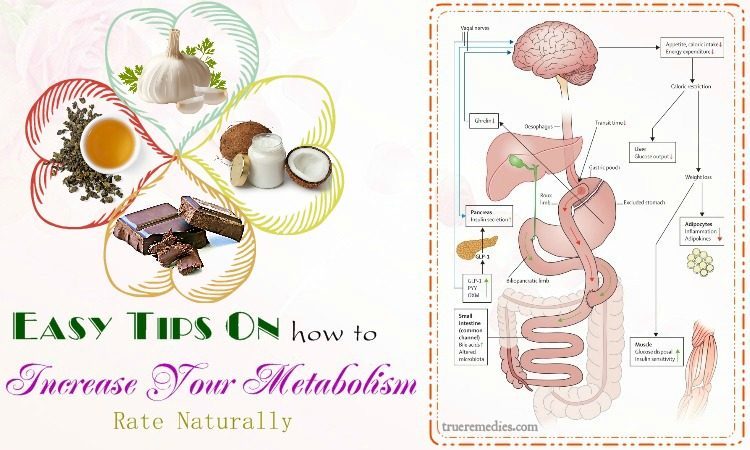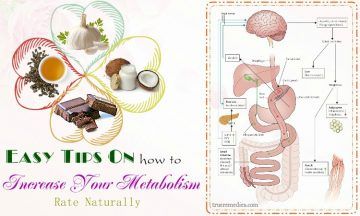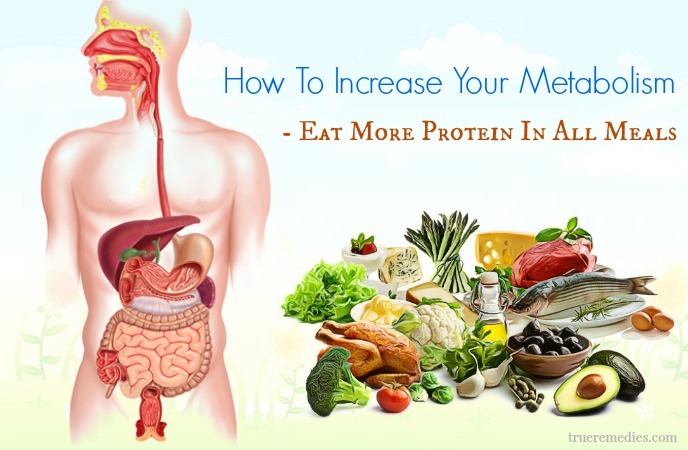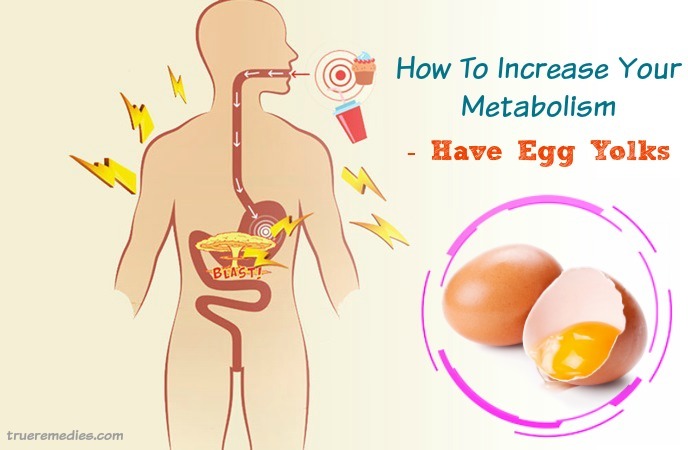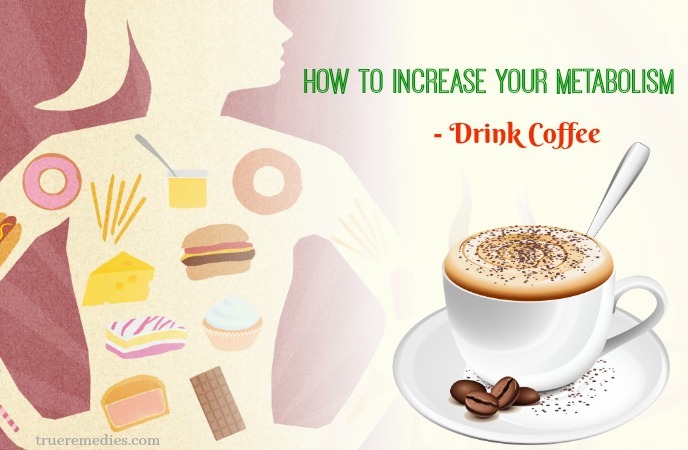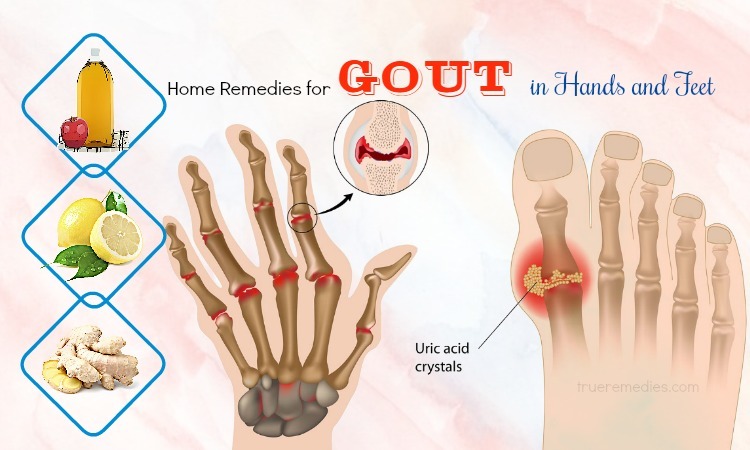Contents
Metabolism is the rate at which the body metabolizes the food you eat. If you are trying to lose weight, increasing your metabolism can help you lose weight without having to cut back on calories. Although some “metabolic enhancement products” are effective, the commercialization mechanism for these products makes it difficult to determine their true effect.
So how to increase metabolism properly? This article will guide you to do that naturally. But first, let's look at some basic information about metabolism to get a better understanding of it.
What Is Metabolism?
Metabolism is the process of biochemistry that occurs in organisms with the goal of producing energy for cell survival (catabolism) or synthesis of cellular matter (copper process). ). That is the foundation of all biological phenomena. In other words, metabolism is the amount of calories that you burn. The higher the metabolic rate, the more calories you burn and the faster you lose weight. High metabolic rate can also give you more energy and make you feel better [1].
Many people talk about metabolism as if it were a part or organ in the body. But in fact, metabolism is used to define a process. It's a series of biochemical processes within each cell, converting the calories you eat into energy to help you live. Even if you do not do anything, your metabolism is still going on. It is defined as the process of metabolism in a state of rest. Surprisingly, large parts of the body like the brain, liver, kidneys and heart burn up to half the calories you burn every day.
Many people believe that they are overweight due to their body having problems with calorie metabolism, their body cannot burn the calories they have absorbed. In fact, in many cases, the reason they are overweight is because the calories absorbed into the body are higher than the calories they burn. Although you exercise regularly, if you eat too much, it is very difficult to lose weight. The reason is that the amount of calories not digested will accumulate into excessive fat. Excess fat is more difficult to burn than other types of calories.
How Does The Body Metabolize?
The body metabolizes in three main ways. They are:
TrueRemedies Partner Solutions

Need a Help from the Leading Expert Online, Available 24/7?
They’re all here and ready to answer your questions online or by phone. Keep asking questions until you get the answer you need.
- The first way: metabolism in the state of rest. At this point, energy is used for the basic functions of the body.
- The second way: energy is used to digest food, also known as food heat effects.
- The third way: energy is used in physical activity.
There is a fact that many people do not know: the metabolic rate while you rest takes up a very large amount of calories that you burn every day. On the other hand, physical activity only accounts for a small fraction of the total energy you use (about 10-30%), unless you are a professional athlete or you have to work hard. Digestion only burns 10% of calories. Therefore, it can be said that for most people, metabolism in the state of rest occupies 60-80% of the total energy they consume. Even though you're resting, your body does not stop working. This is why it is not surprising that exercise only leads to small changes in body weight.
Even if two people have the same size and body composition, their metabolism may still be very different. For many people, although they eat a lot, they do not gain weight. But with many others, despite their poor diet, they still gain weight. Why does this happen? It is still in a “black box”. Professor Will Wong, from the Johns Hopkins Metabolism and Metabolism Research Center, said: “We do not yet understand the mechanisms of metabolism control in humans.”
Researchers can only find a number of factors that help predict a person's metabolic rate. These include: the number of lean and fat muscles, age, and genetic factors. In terms of genetic factors, scientists also do not know why some families have high or low metabolic rates than normal. Gender is also a variable to be considered. Women in similar comparisons always burn fewer calories than men. For women, metabolism is also affected by the menstrual cycle. Some women have higher metabolic rates in the last half of their menstrual cycle [2].
What Are Common Causes Of Metabolic Decline?
Here are common causes of this problem:
- Genetic Factors
Some people are lucky because they have a fast metabolism. Besides, the metabolism in the body of others is slow and cannot improve significantly. This is due to genetic factors.
- Age
If your body has a high muscle mass, then your metabolism is faster. But as age progresses, the amount of muscle in the body decreases naturally, which means that the metabolism slows down. Therefore, you need to exercise regularly to maintain muscle, avoid the decline in metabolism. So, at what age does your metabolism slow down? The older you are, the slower your metabolism is. This happens slowly and independently of your fat or muscle tissue. By the time you reach 60 years old, you will burn fewer calories than when you are 20 years old. This decline is ongoing and starts at the age of 18.
- Life Style
Sometimes, your habits cause the metabolism of the body to decrease. Some medications you take, such as antidepressants, may also slow down metabolism. Fasting vegetarians or skipping breakfast are also likely to cause hormonal imbalances and as a result, the body is in a “resting” state. When in this state, your body reacts by slowing metabolism to store energy. Constant energy reserves will turn into fat. This leads to a decreased metabolic rate and can cause weight gain.
- Eat Too Much
Why eating too much is the cause of slow metabolism? That is because when the calories in the body are too much, the digestive system will not be able to handle it in time. Too much calorie intake causes excess calories (because they are not burned). As a result, blood glucose levels increase and tissues cannot assimilate glucose. Excess calories are accumulated in the cells and are responsible for slowing metabolism.
- Hypothyroidism
Hypothyroid is a condition in which the thyroid gland does not produce enough of some important hormones for the body. In people with this condition, the thyroid gland may swell (cause goiter) or not. Hypothyroidism increases the risk of cardiovascular events. This deficiency also affects the general hormonal balance in the body and the metabolic rate. Slow metabolism means that fat is not burned.
Treatments for hypothyroidism should be based on the cause of the disease and must be prescribed by a physician. If temporary hypothyroidism is due to over dosage of anticholinergic drugs, reduction of the drug is necessary. If hypothyroidism is due to iodine deficiency, this substance should be added to your body.
The above are basic information about metabolism. You've probably got the most out of this situation. If you are experiencing metabolic decline, do not worry. There are many ways to help you overcome it. It is time to find out tips on how to increase your metabolism rate. Take a look at TrueRemedies.com!
Top 15 Tips On How To Increase Your Metabolism Rate
1. Eat More Protein In All Meals
This is the first treatment in this list of tips on how to increase your metabolism rate. Eating can increase the rate of metabolism within a few hours. This is called the thermic effect of food (TEF). The cause is that the body needs to burn calories to digest and absorb nutrients in your diet. Protein is the substance that produces the highest thermal effect. It can increase the metabolism rate by about 15-30%, compared to 5-10% with starch consumption and 0-3% when consuming fat. Eating a lot of protein is also proven to make you feel full and stop eating too much [3].
A small study has shown that people usually eat less than 441 calories a day if 30% of their diet is protein. Eating a lot of protein can also prevent the process of reducing your metabolism when you lose weight. Protein blocks the loss of muscle mass – an unwanted effect of dieting. A lean protein diet will boost your metabolism as your body needs more energy to digest protein. Therefore, let’s choose lean protein like turkey, fish, eggs, beans and tofu. Fresh cheese is a source of casein protein. You should eat fresh cheese, especially before going to sleep, because cheese dissolves slowly in the body and causes the metabolism to take place throughout the night.
2. Eat Small Meals
Among tips on how to increase your metabolism rate, this is one of the most effective. Long time between meals makes the body fall into “hunger” mode, causing metabolic rate to slow down to conserve energy and prevent hunger. Some people may lose weight through intermittent fasting, but most will tend to eat less when eating small meals on a regular basis. In addition to eating 4-6 small meals a day, eating healthy snacks also increases your metabolism. You should bring more healthy snacks to work. In case you need to work overtime, if you do not have enough food then you will be hungry. As a result, you will eat something you should not eat and your weight loss plan will not work.
3. Eat Foods That Contain Spices
Eating foods that contain spices is one of little – known tips on how to increase your metabolism rate. Pepper contains a substance called capsaicin, which increases the rate of metabolism. A study of capsaicin showed that eating pepper can burn about 10 calories per meal. Eating pepper-based foods can benefit your metabolism and help you maintain a healthy weight. Besides pepper, adding spicy chili, red chili powder or Cayenne peppers to the dish can help increase metabolism. Because the effect of eating spicy foods is temporary, you can add a spicy taste to one or more meals a day to boost your metabolism.
4. Use Coconut Oil For Cooking
This is another must-try treatment in this list of tips on how to increase your metabolism rate. Unlike saturated fat, coconut oil contains a lot of fat with medium chain length. Fat with medium chain lengths can increase the metabolic rate much more than long chain fatty acids found in butter. In one study, researchers found that average chain length lipids could increase the metabolism rate by 12%, compared to long chain fat (only increasing it to 4%). As fatty acids are abundant in coconut oil, replacing some of the fat when cooked with coconut oil can have beneficial effects on weight loss.
Also read: 40 Effective & Natural Home Remedies For Anorexia Nervosa
5. Apply A Healthy Diet, But Do Not Fast
This is the next treatment in this list of tips on how to increase your metabolism rate. Fasting will significantly reduce the amount of calories consumed, so it will negatively affect the metabolism. Although you may initially lose some pounds by fasting, it will slow down your metabolism and often lead to more weight gain. Fasting also causes the diet to lack the necessary variety, which in turn leads to a shortage of some important nutrients [4].
6. Use Extra Virgin Olive Oil
The human body needs dietary fat, especially healthy oils, to reduce weight and function appropriately. In fact, the right types of oils and fats can assist in quashing hunger, maximizing the metabolism, and speeding nutrients via the human body. The healthy monounsaturated fats such as olive oil could really help our bodies to burn more calories. Olive oil, particularly the extra virgin type, can increase blood levels of serotonin, which is a hormone accompanied by satiety. Moreover, olive oil is packed with antioxidants, polyphenols that can help in battling a lot of diseases such as osteoporosis, brain deterioration, and cancer.
7. Have Egg Yolks
This is one of little-known tips on how to increase your metabolism. Despite it is true that egg whites are fat-free, rather low in calories, and have the majority of the protein found in eggs, consuming the whole egg is good for the metabolism. The yolk has a lot of metabolism-boosting nutrients, including essential fatty acids, fat-soluble vitamins. If you are worrying about cholesterol when consuming eggs, then the good news is that moderation consumption of two whole eggs each day does not have any negative effect on the lipid (fat) profile of an individual and might actually improve it.
8. Drink Full-Fat Milk
According to the Nutrition Institute at the University of Tennessee, consuming milk is a good way on how to increase your metabolism. The reason is because milk has lots of calcium, which helps your body metabolize fat more effectively. Also, increasing the intake of calcium from dairy products, not from supplements, could help you lose fat faster.
9. Go For Whole Grains
When consuming whole grains, your body has to spend extra attempt into break down them, in comparison with process or refined grains. You could maintain the metabolic rate increased through eating foods that your body has to work harder in order to digest. Go for foods that are rich in fiber, such as quinoa, brown rice, oatmeal, and sprouted grain bread.
Learn more: 14 Easy Tips on How to Grow Taller Fast During & After Puberty
10. Eat More Garlic
Garlic can support your blood-sugar metabolism while controlling the fat level in your blood. You can add garlic to foods which are high in fats as well as carbohydrates to keep such substances from doing their damage. Consuming garlic also help increase your immune system, fight off heart disease, beat off inflammation and lower the blood pressure.
11. Avoid Diet Soda
Diet soda has no calories, yet drinking diet soda may harm your goal of tightening a fatty belly. A research has shown that artificially sweetened drinks might screw up the normal metabolic response of our bodies to sugar, thereby increasing appetite. Diet drinks are associated with metabolic syndrome, weight gain and other illnesses.
12. Eat Chocolate
German and Swiss researchers have shown that people eat chocolate regularly have lower stress-hormone levels as well as a better metabolism (more regulate) than those who do not. The chemicals in cocoa, like flavonoids, play an important role in this case. They regulate metabolism by reducing stress. Eat 1.5 ounces of dark chocolate daily to get good results.
13. Drink Oolong Tea
This is a traditional Chinese tea which can keep your cholesterol levels in check and support digestion. Also, it gives a helping hand to rev your metabolism. Similar to green tea, Oolong tea has catechines with the ability of boosting weight loss through improving the ability of our bodies to metabolize fat. The study in the Chinese Journal of Integrative Medicine showed that people regularly sipping oolong tea could lose 6 pounds over 6 weeks.
14. Consume More Lentils
It is estimated that iron deficiency impacts over 1 in 5 women in the U.S. In fact, lack of essential minerals could show up through various ways, like anemia and fatigue. Your body cannot work effectively to burn calories if it does not have what it demands in order to work well. This is when lentils come into the picture. Lentils provide you with more than 1/3 of your daily iron needs. The legumes like lentils also help to reduce bad cholesterol as well as blood pressure.
15. Consume More Salmon
Despite there are a lot of fish in the sea, salmon stills makes its fame thanks to various benefits it brings to your whole body. It may be your best bet among fish types when it comes to improving your metabolism. Most cases of underactive thyroid are because of inflamed glands. Salmon has anti-inflammatory properties due to its rich content of omega-3 fatty acids. Thus, if you are looking for useful ways on how to increase your metabolism, go for salmon.
16. Eat Apples
By eating an apple every day, you can prevent metabolic syndrome, which is a disorder accompanied by abdominal fat, diabetes and cardiovascular disease. Also, they are low in calories and rich in fiber. Thus, there is no reason for you to not eating an apple daily for better metabolism.
17. Drink Plenty Of Cold Water
This sounds strange when it comes to tips on how to increase your metabolism rate, but it works. People who drink a lot of water instead of drinking sugary drinks will be able to lose weight successfully. Besides, they can maintain that weight longer. The reason is because sugary drinks usually contain calories, so replacing them with cold water will automatically reduce the amount of calories you consume.
However, drinking water can also temporarily increase the metabolic rate. One study found that drinking about 0.5 liters of water would increase your metabolism rate by about 10-30% for about an hour. The calorie-burning effect will be even greater if you drink cold water, because your body will need energy to warm it up to your body temperature.
Water can also make you feel fuller. Studies show that drinking cold water before eating half an hour can make you eat less. A study of overweight adults found that people who drink 0.5 liters of water before meals could lose more weight than those who do not. So, we can say that water can help you lose weight and maintain your ideal weight because water can increase metabolism and make you feel full before eating.
18. Drink Green Tea
Drinking green tea is the next one in this list of tips on how to increase your metabolism rate. Green tea has been shown to increase metabolism by about 4-5%. This tea can convert some of the stored fat into free fatty acids, so it can increase the amount of fat burned by about 10-17%. And because this tea contains very low calories, drinking green tea can be good for both weight loss and weight maintenance. In addition to increasing the rate of metabolism, green tea can also prevent excessive weight loss due to reduced metabolic rate. This is definitely good news for those who like to drink green tea.
Don’t skip: 21 Natural Home Remedies For Indigestion In Teenagers & Adults
19. Drink Coffee
This is one of the little-known tips on how to increase your metabolism rate. Studies have shown that caffeine in coffee can increase metabolism by about 3-11%. Like green tea, coffee also enhances the burning of fat. However, this is usually only effective for thin people. Studies show that coffee can increase the amount of fat burned in women by 29%, but with obese women, coffee only increases the amount of fat burned to 10%.The effects of coffee on metabolism and fat burning can also help you lose weight successfully and maintain that weight.
Note that caffeine's metabolic efficiency is lower than other measures, such as exercise. Excessive caffeine intake can also cause restlessness, insomnia, and other negative side effects.
20. Practice High Intensity Exercises
High intensity exercises include quick activities and activities that require great effort. These exercises can help you burn fat by increasing your metabolic rate, even when your training is over. High intensity exercises are often considered to be more effective than other exercises. A study of overweight men showed that high-intensity exercise for 12 weeks could reduce the amount of fat around 2kg and reduce belly fat by around 17%.Combining daily exercise and intensive exercise can increase your metabolism and help you burn fat.
In addition, you can also exercise in other ways. The more you move, the more likely your metabolism will be. So, look for opportunities to increase your mobility throughout the day. For example, you could take the stairs instead of the elevator, park your car away from the destination (such as an office, supermarket, restaurant,…) or ride to work instead of motorbike [5].
21. Lifting Heavy Objects
Among tips on how to increase your metabolism rate, this is one of the most effective. Muscle usually has more metabolic activity than fat, so muscle building can increase your metabolic rate. This means you will burn more calories per day, even when you are resting. Lifting heavy objects (such as lifting weights) can help you maintain your muscles and fight off the metabolic decline that occurs when you lose weight [6].
Researchers have conducted a study on 48 overweight women who were on a diet (consuming only 800 calories a day) and played sports, aerobic exercise or lifting heavy objects daily. After the diet, women who performed lifting heavy objects exercises can maintain their muscle mass, metabolic rate and strength. In other women, although their weight was reduced, their muscle mass and metabolic rate decreased dramatically. For these reasons, we can assert that lifting heavy objects is very important in the formation and maintenance of muscle mass. The more muscle, the higher the metabolic rate.
Learn more: 36 Natural Home Remedies For Low Blood Pressure Symptoms
22. Standing More
Standing more is one of little – known tips on how to increase your metabolism rate. Sitting too much will be bad for your health. The reason is because sitting more will burn fewer calories and can lead to weight gain. In fact, compared to sitting, standing in an afternoon can burn more than 174 calories. If you do office work, you should stand up for a short period of time to reduce the time you sit. Sitting much can burn fewer calories and is bad for health. Let’s try to stand on a regular basis or buy a standing desk to help increase your metabolism.
23. Have A Nice Sleep
This is another must-try treatment in this list of tips on how to increase your metabolism rate. Lack of sleep can lead to a significant increase in the risk of obesity. The cause is due to the negative effects of the lack of sleep on the metabolism. Lack of sleep may be associated with increased blood sugar and insulin resistance, both of which are associated with an increased risk of developing type 2 diabetes. Lack of sleep has also been shown to increase ghrelin hormone and decrease leptin. This may explain why people who lack sleep often feel hungry and have difficulty losing weight. Lack of sleep can reduce the amount of calories you burn, change sugar processing and disrupt the hormonal regulation that is associated with appetite.
24. Use At Least 30 Minutes A Day For Aerobic Exercise
The next treatment in this list of tips on how to increase your metabolism rate is using at least 30 minutes a day for aerobic exercise. Aerobic exercise burns calories during exercise and improves metabolism even after you finish the exercise. If it is difficult to use 30 minutes to aerobics, so let’s split the exercise several times a day, such as a 5, 10 or 15 minute training session. When you start exercising (if you do not have a regular exercise routine), you will feel hungry. This is completely normal! Your body is telling you that it needs more energy to keep up with new calories.
25. Strength Training
Muscle building improves metabolic rate in resting state. 0.5 kg of muscle will burn 6 calories a day, while 0.5 kg of fat will burn only 2 calories a day. This figure does not seem much, but the amount of calories that the body burns in resting state will increase over time. Muscle burns more calories than fat (exactly more than 73 calories per kilogram a day), so the more muscular you are, the higher the metabolic rate in the resting state (RMR) is.
Each muscle cell that is increased will be like a small plant that burns calories continuously, even if you are in a state of sleep and burn more calories when you exercise. This is the only way to speed up the RMR, which accounts for 60-70% of the calories you burn daily.
How To Increase Metabolism – Some Attention
In addition to applying these tips, to increase your body's metabolism, you need to pay attention to the following:
- Try to avoid soda, salty foods and salad dressings. Soda is proven to make you crave foods that are high in sugar, which will cause weight gain.
- Drink plenty of fluids, dehydration will reduce your metabolism.
- Stay away from over-the-counter weight loss pills. As their name implies, these products seem very effective to lose weight. However, over-the-counter weight loss pills are not regulated by the FDA, so it cannot be guaranteed that they will help you lose weight. Some medications can even be dangerous due to high levels of caffeine and other ingredients.
- Do not abuse diet or exercise program. Consult your doctor or dietitian to determine a weight loss plan that fits your physique before starting an exercise or diet plan.
- If you are pregnant or breast-feeding, your caloric needs will increase. Therefore, consult a doctor or specialist before cutting back on diet or reducing any specific food groups.
Above are tips to help you increase the metabolism of the body. Many people have succeeded in increasing their metabolism just by applying some of these tips. Choose some of them and alternate them in your treating to see how effective they are. If you have any contributing ideas about our article of “Top 25 Tips On How To Increase Your Metabolism Rate Naturally” introduced in How To Category, do not hesitate to drop your words below this post. We will answer as soon as we could.

